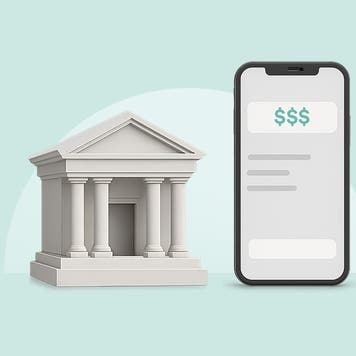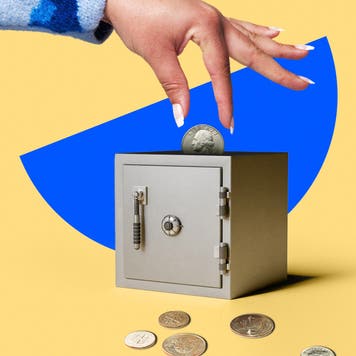Banking
From savings account details to bank reviews, economic insights and more — Bankrate offers valuable information and advice for you.
Explore banking basics

How to open a certificate of deposit (CD)
Banking
Everything you need to know about opening an account.

How to start saving (even if you’re starting from scratch)
Banking
Getting into the habit of paying yourself first is hard. Here are some ideas to help you start.

How to transfer money from one bank to another: 4 ways
Banking
Keep fees in check when you shift money from one bank account to another.
Find more resources
Editor's picks

Experts in all things banking
Our expert reporters and editors bring the news and analysis you need—backed by data and firsthand experience.
About Bankrate
Bankrate Financial Analyst

Principal U.S. Economy Reporter

Senior Economic Analyst
Banking data studies

A majority (81%) of Americans did not increase their emergency savings this year

Over 1 in 4 workers are more worried about job security since 2025 began.

Two-thirds of American savers say they’re earning rates below 4% APY. Here’s why.
Featured by names you know and trust
Latest articles

A majority (81%) of Americans did not increase their emergency savings this year

Check out the latest CD rates from Bankrate’s weekly survey of banks and thrifts.

Here’s how to boost your savings.

Sometimes paying an early withdrawal penalty on a CD isn’t a bad idea.

The National Credit Union Administration is similar to the FDIC, which covers banks.

Mobile apps make managing your money a snap and mobile alerts can help protect it.

Ready to open a savings account? Here’s what you’ll need to know.

The Federal Reserve left interest rates unchanged at its first meeting of 2026, keeping borrowing costs in a target range of 3.5-3.75%. This decision (supported by a 10-2 vote) pauses a streak of three [...]

A majority (81%) of Americans did not increase their emergency savings this year

Here’s how to boost your savings.

Ready to open a savings account? Here’s what you’ll need to know.

An emergency fund is an essential part of a solid financial plan.

It’s a low interest rate environment, but there are ways to earn more on your money.

Getting into the habit of paying yourself first is hard. Here are some ideas to help you start.

Keeping your savings in a bank down the street may seem like the obvious play, but there may be real downsides for doing so.

Comparing savings rates can ensure you get the best return on your savings.

Check out the latest CD rates from Bankrate’s weekly survey of banks and thrifts.

Sometimes paying an early withdrawal penalty on a CD isn’t a bad idea.

The Federal Reserve left interest rates unchanged at its first meeting of 2026, keeping borrowing costs in a target range of 3.5-3.75%. This decision (supported by a 10-2 vote) pauses a streak of three [...]

CD terms can range from three months to five years. Learn which one is right for you.

Find out what happens to CDs that are set to mature.

Take a look at the days when CDs were offering investors double-digit returns.

Here are differences between CDs and share certificates, and which one to choose.

Everything you need to know about opening an account.

CD terms can range from three months to five years. Learn which one is right for you.

Get the latest rates on top-yielding money market accounts.

Expect yields to continue trending downward in 2026.

These credit unions offer great rates and top-notch features — and many make it easy to join.

Investing with mutual funds is an easy way to build a diversified portfolio. Here’s what you need to know.

These accounts sound similar, but there are some key differences to know.

How Reg. D impacts your savings account and why it pays to check with your bank.

The best account to save your money will vary by your goal.

Mobile apps make managing your money a snap and mobile alerts can help protect it.

Online bill pay can add convenience and security to managing your routine bills.

A bank may deny you a checking account. Here is what you can do next.

Depositing cash into someone’s account isn’t always possible, but there are options.

Knowing your limit before making a purchase can help you make smarter decisions.

A second-chance checking account is designed for those whose banking history may prevent them from opening a standard account. Applicants sometimes have past problems such as an unpaid negative balance [...]

Spend money, pay bills, write checks or make fund transfers with a checking account.

Here’s how these two bank fees compare and how to best avoid them.